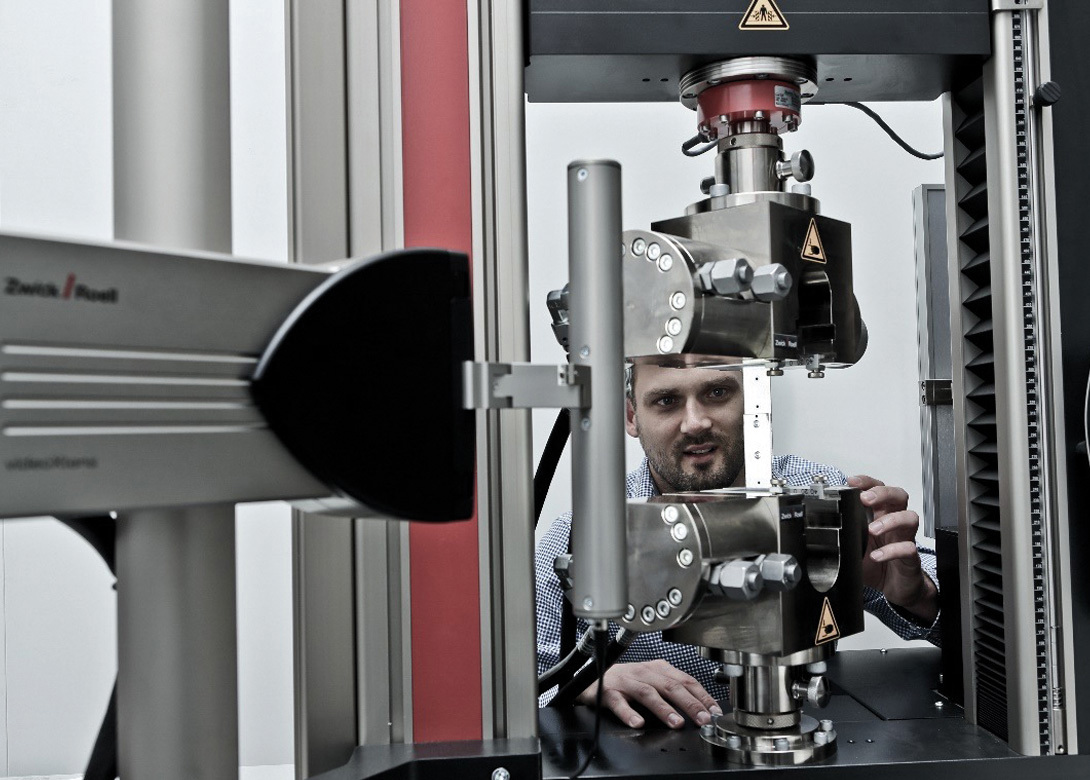
By Alan Thomas, marketing at ZwickRoell Ltd
The automotive industry is in the midst of change and faces major challenges driven by the necessity to reduce emissions, which can only be achieved through electrification and consistent lightweight construction.
Most vehicle components must be designed to tolerate mechanical loading over the service life of the vehicle and reliably fulfil the component operational requirements. Mechanical testing systems support this requirement from the reliable determination of material characteristics through the functionality checking of components.
Compliance with strict statutory emission limit values requires that the automotive industry make vehicles more efficient and environmentally friendly. This will be achieved through drastic weight reductions, improved combustion technology and exhaust gas treatment, as well as through the use of alternative drives. Despite more stringent requirements for safety, efficiency, and comfort, it is now considerably easier for manufacturers to produce each new generation of vehicle. At the same time, this requires newer or improved materials, as well as intelligent material compounds that allow improved properties at lower specific weights in their area of application. In addition, weight reduction is systematically implemented in all components of a vehicle, which is required for optimal material utilisation.
Reliable determination of mechanical characteristics plays a vital role here. By using diverse mechanical testing methods, the various material properties are determined as realistically as possible. Universal materials and component testing systems can generally be expanded with measurement sensors, specimen grips, test fixtures and environmental simulations. As a result, it is important that the testing system can be adapted to accommodate modified or future test tasks.
In vehicles, various joining methods are used that all have to be characterised mechanically. Removable threaded connections are used in a range of applications within vehicle manufacturing and increasingly in safety critical applications. The quality requirements that must be met in tensile and fatigue testing are correspondingly high for screws. In the chassis, linear connections (welded joints) are used overwhelmingly where the focus is on the service life of the component or joining connection.
Adhesive bonding has become a popular method for reliably joining various materials and continues to gain popularity in the automotive industry. Modern adhesive materials fulfil the requirements of lightweight construction optimally since they offer high joining quality at a low weight and can be implemented flexibly. The focus lies on a ‘crash safe’ design of components, while simultaneously ensuring the required service life is achieved. In addition, stiffness is a key criterion for designing components in the body shell, as well as in the chassis.
The mechanical properties of the joining connections must be determined under quasi-static, as well as under fatigue and impact dynamic loading. The data calculated during testing (quasi-static tensile tests, fatigue strength tests and dynamic impact tests) is used for quality assurance and as input for simulating service life and crash behaviour.
When using component-like specimens, these can also be used as validation for service life or crash models. The combination of various materials is becoming increasingly important in lightweight construction. Joining metallic and non-metallic materials presents challenges to the manufacturer that can only be solved by using various joining methods.
ZwickRoell is one of the world’s leading suppliers of materials and component testing systems. The company supplies both standard and tailor-made solutions to satisfy the most demanding requirements, in research and development, production and quality assurance, across more than 20 industry sectors. Privately held, the company’s consistent focus on innovation and commitment to outstanding quality has supported its growth in markets worldwide.

Will joined Fastener + Fixing Magazine in 2007 and over the last 15 years has experienced every facet of the fastener sector - interviewing key figures within the industry and visiting leading companies and exhibitions around the globe.
Will manages the content strategy across all platforms and is the guardian for the high editorial standards that the Magazine is renowned.
Don't have an account? Sign Up
Signing up to Fastener + Fixing Magazine enables you to manage your account details.